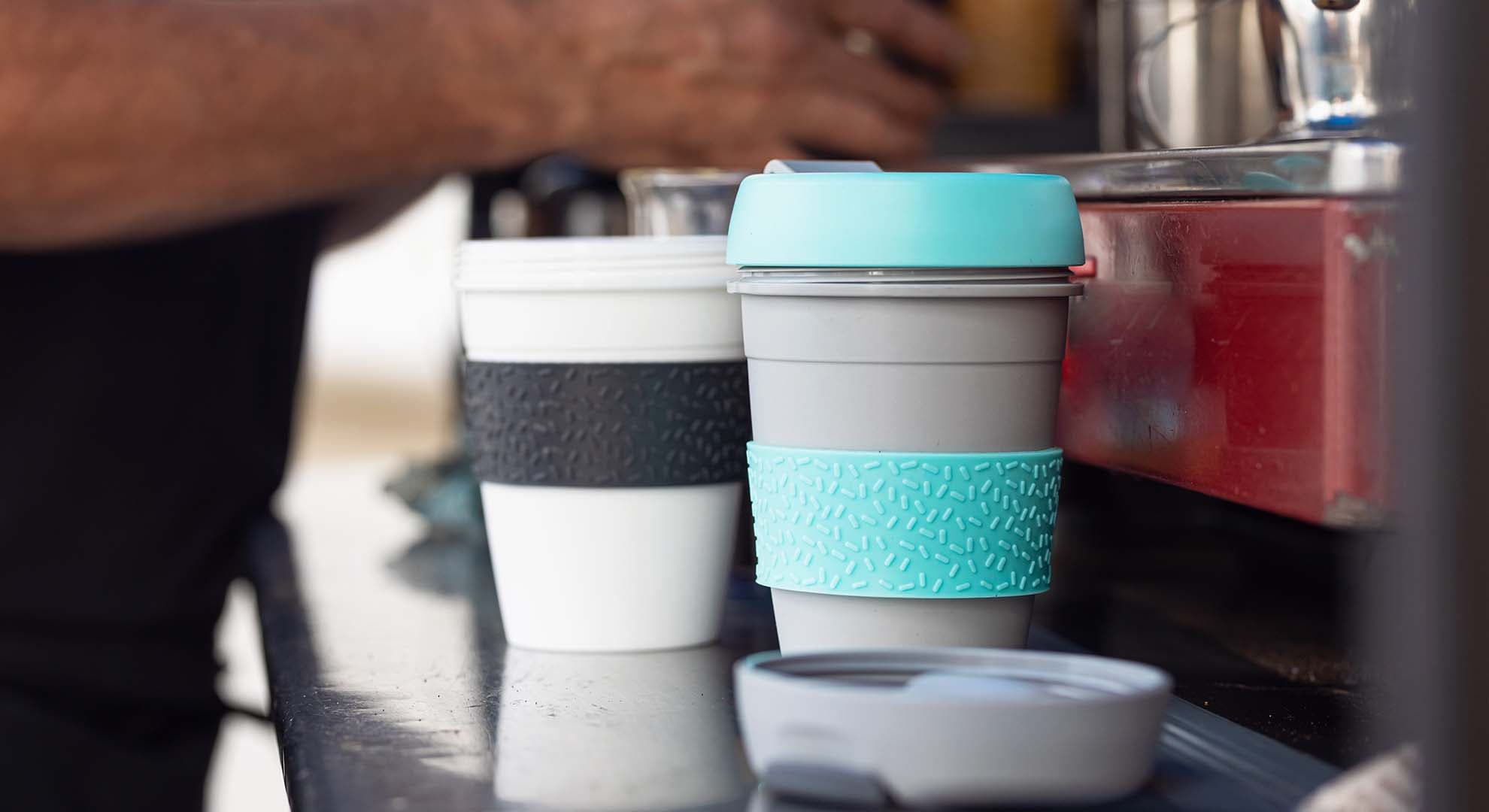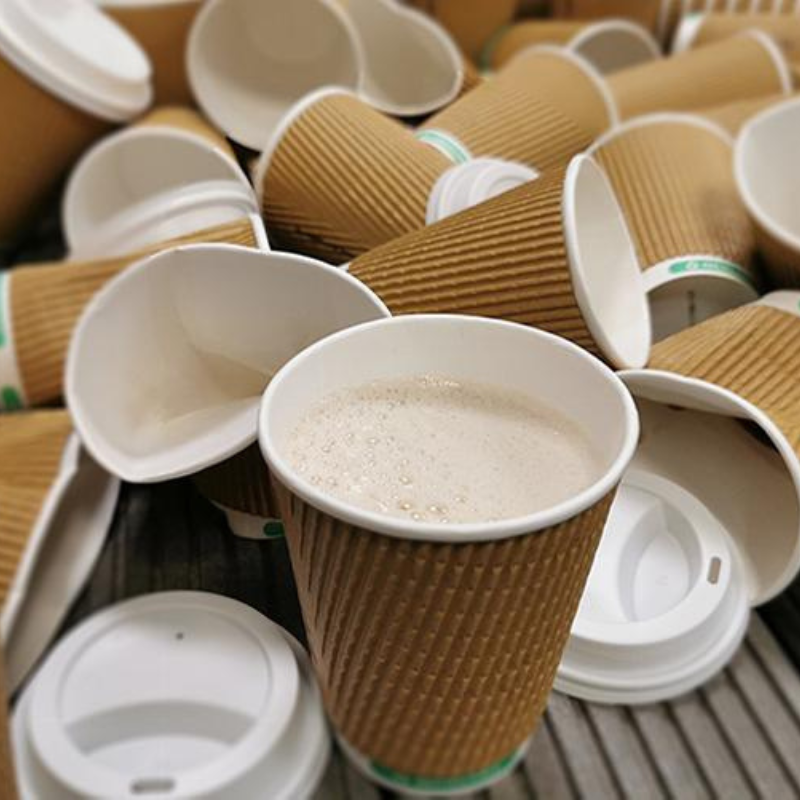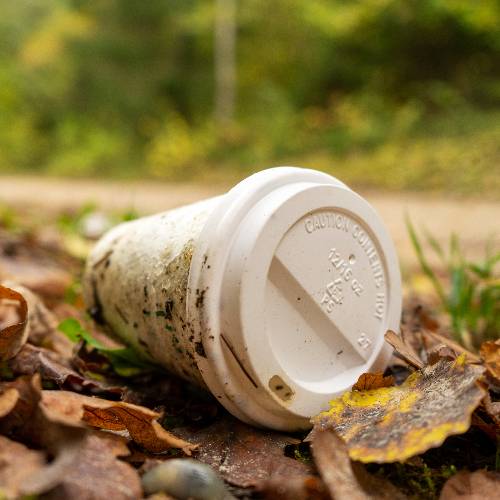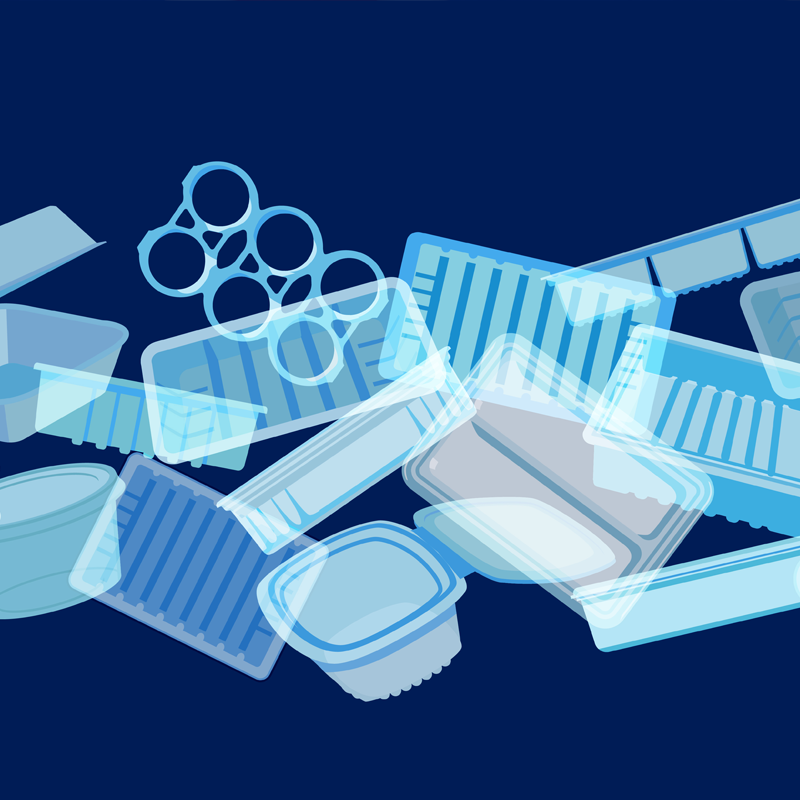
Switching to reusable cups - examples from Scotland and beyond
There have been a large variety of cup schemes aiming to reduce or totally remove the use of single-use cups.
Ditching Disposables
The aim of “Ditching Disposables” is to support hospitality businesses to shift away from single-use items, such as sauce sachets and stirrers, as well as cups and takeaway containers.
Initial pilot in Portobello and Joppa
Zero Waste Scotland funded environmental agency Changeworks to run a pilot Ditching Disposables project in the Portobello and Joppa area, just outside Edinburgh in 2021/22. The Ditching Disposables project is supported by the Scottish Government and the European Regional Development Fund (ERDF).
In terms of reusable cups, one of the participating businesses ran a deposit scheme for cups alongside a 20p charge for disposable cups. This approach resulted in a reduction in the use of disposable cups by more than 95%.
Ditching Disposables Stirling - Pilot Trial
In Stirling, the Ditching Disposables project piloted a return scheme for reusable cups across three different activities - the Event Scheme, the Venue Scheme and the Café scheme.
You can read about the pilot in the report, ‘Ditching Disposables Stirling – Findings from the pilot trial’. We also have a Summary Report available.
NHS Scotland University Crosshouse Hospital
NHS Scotland, in partnership with Zero Waste Scotland, implemented a 10p charge on single-use hot drinks cups at University Hospital Crosshouse in Ayrshire, reducing the price of hot drinks accordingly to make it cost-neutral. In addition, paper disposable coffee cups and polystyrene soup cups were replaced with 100% recyclable polypropylene disposable coffee cups. Meanwhile, Crosshouse staff were provided with free, reusable and 100% recyclable polypropylene cups. In addition to paying 10p less for their drinks, staff using any reusable cups also obtained a stamp towards a free 10th drink.
During the trial, reusable cup usage increased from 1% to 43%, reducing coffee cup consumption by 157 a day, or almost 60,000 a year.
In addition, hot drink sales increased by 10% over the trial period, while survey data revealed strong support for the trial system.
Keep Scotland Beautiful
Keep Scotland Beautiful is also supporting reuse in the Highlands with a new reusable packaging trial available to businesses in 2024, working with reusable packaging supplier Vytal to support the switch of both cups and also food packaging to reusables. This builds on the success of the Highland Cup Movement.
Keep Scotland Beautiful has delivered a number of Cup Movement projects to encourage recycling and reuse. The latest, Highland Cup Movement, ran in the Highlands in 2023 and resulted in over 1,000 reusable cups being checked out with a 92% return rate and a 27% increase in customers using their own reusable cup.
Read the report for more information.
Up and coming reusable cup projects
V&A Dundee
Zero Waste Scotland is working with the V&A Dundee in 2022 as part of the V&A’s ‘Plastic: Remaking Our World’ exhibition. As well as partnering on the content of the exhibition, the two organisations are also partnering on a trial of a deposit system for cups in the museum.
Other reusable cup schemes in Scotland
Here are some additional reusable cups schemes already operating in Scotland which are worth noting.
Zero Waste Scotland has not been involved in the set-up of these schemes. The information provided below is not exhaustive and other schemes may be operating, nor is it an endorsement from Zero Waste Scotland of the companies involved. Due diligence should always be used when looking at implementing and working with other businesses.
Murrayfield Stadium
Existing examples include a reusable cup scheme at Murrayfield stadium, where customers pay a £1 deposit for their first drink. Every subsequent drink is poured into a clean reusable cup. When the supporter has finished drinking, they either keep the cup as a souvenir or return it to a cup refund point in exchange for their deposit. The cups are provided by London based Green Goblet.
A very similar scheme is offered at Kings Theatre in Edinburgh.
YoYo Cup and Orbit cups*
There are also a number of Scottish start-ups developing cup rental services that coffee shops can sign up to as participating outlets. Examples include YoYo Cup and Orbit cups.
The model requires the consumer to pay a deposit to borrow a cup (£4 in the case of Yoyo cup and £1 for Orbit cups at the time of writing) and once they’ve finished the beverage they can return it to any member outlet, where the deposit is returned and the cup is washed, ready to be borrowed again by another customer. The participating café pays the cup provider (i.e. Yoyo Cup/Orbit Cup) for the use, maintenance and stock control of the cups.
OVO Hydro (part of the Scottish Events Campus)
In March 2022 the OVO Hydro announced that they were bringing in Stack cups at live events. These cups are particularly designed to allow customers to carry several at one time to minimise spillage as they return to their seats. Same model as others i.e. £1 deposit, refunded on return.
Reusable cups schemes outside Scotland
Shrewsbury Cup
A scheme run by a community interest company across the town of Shrewsbury where customers pay a £1 deposit and can then take their cup back to any participating café.
Cup app membership schemes
Cup app schemes do not require the customer to pay a deposit. Instead, before first using the scheme the customer logs onto an app which holds their credit details.
On ordering a reusable cup, the user is matched to a unique cup ID (generally through RFID or QR code technology). When the cup is returned, the code is scanned again and removed from the users account – if a cup is not returned the user is charged for the cup. Retailers pay a joining and monthly service fee.
Serviced reusable schemes
The serviced reusable model can be operated either using a deposit scheme or a cup app scheme. Deposit schemes are more likely to be used in festival or arena events where there is the scale to support drop off or collection services. Cup app schemes work in urban environments where outlets are distributed and drop off points many not be resourced to support a deposit scheme.
In the serviced reusable model where cups can be deposited and collected remotely from the retail outlet, the focus is on speedy collection, wash and return to use to avoid excessive inventory in the system and hygiene issues.
Examples include:
Serviced reusable vending machine scheme
NEWCy in France provides reusable cups for vending machines, water fountains and cafeterias. They provide the cups, then collect and wash them before returning them to the customer’s sit
Cup wash schemes
Wash-it is a Flemish cooperative platform for washing reusable cups in a socially and sustainably responsible way with a capacity to wash more than 2 million cups per week.
Reusable packaging research
There are more examples available below from other countries such as Germany and the USA.
Discover similar articles
- Guidance




